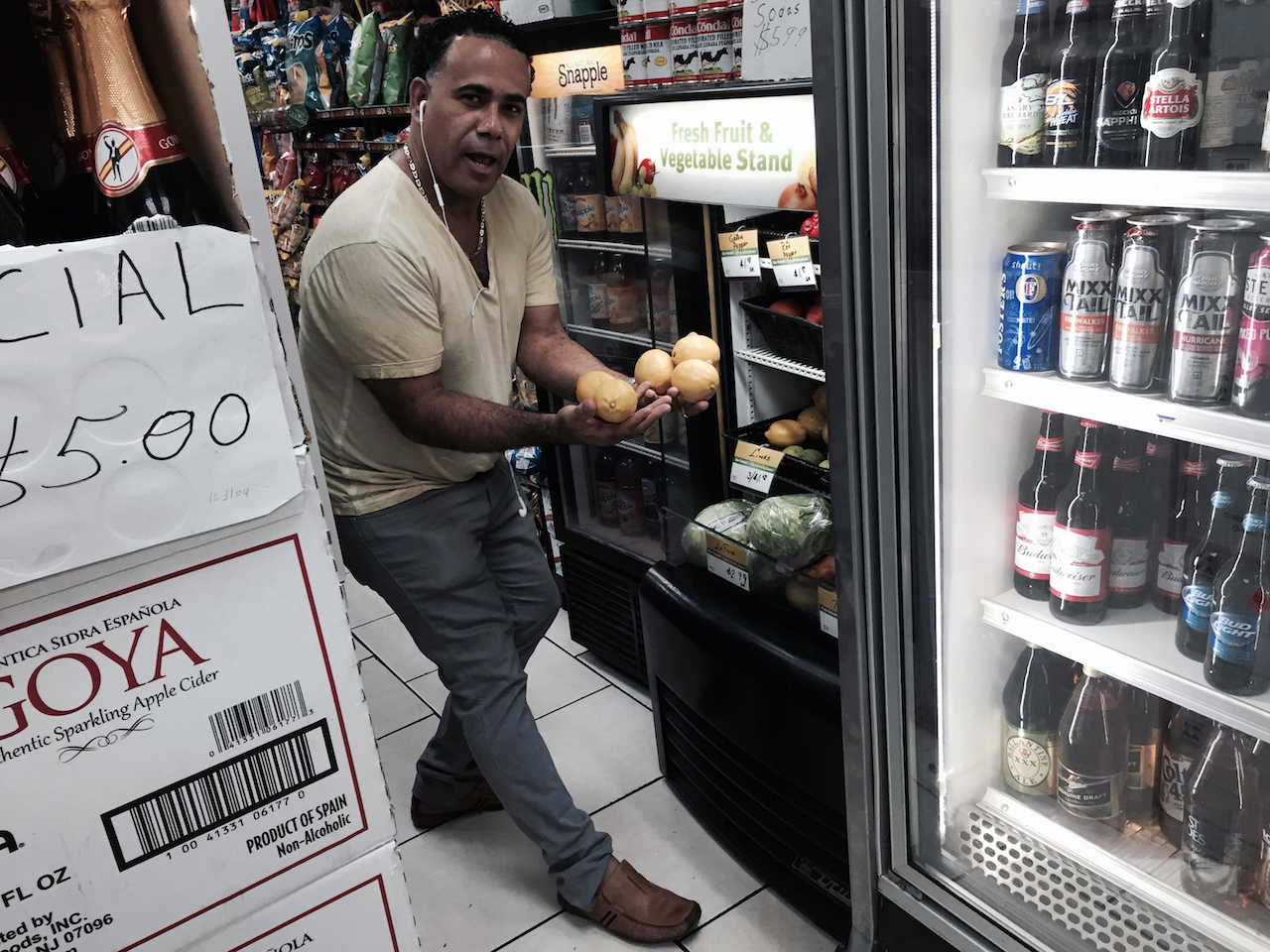
Grocers look to change with the times
After 17 years in Mott Haven, Eugenio Brito decided it was time for a change. The Dominican-born owner of Brito Deli and Grocery said he plans on starting renovations soon to the the bodega he owns and manages at the corner of Crimmins Avenue and E. 141 St. He wants more space so he can sell more fruits and vegetables.
Brito has always known the importance of a healthy lifestyle. As a father of two, he never sold cigarettes in his store, a policy that gave him the authority to lecture his children, now aged 18 and 22, about the dangers of smoking.
The idea for his store renovation, however, came after he attended The Healthy Bodega Initiative, a workshop that focused on strategies for bodegas in the Bronx to offer healthier food and drinks in a financially sustainable way. Brito now wants to expand, and he wants to do it by focusing on health.
“I’ve always sold some fruit in my store,” he said in Spanish, “but not as much as now.” He now wants to make room for a much large fruit section. “I want everything out,” he said raising his arms and motioning that half of his store is about to turn green.
Bodegas—the classically New York version of the corner grocery store—typically employ 2-5 people. The South Bronx has an abundance of them: over 300 just in the zip codes that make up Mott Haven and Melrose.
After years of a cultural shift in the nation that brought attention to obesity and obesity-related related diseases, and the role that healthy eating plays in solving the crisis, organizations such as Bronx Health REACH and City Harvest argue that the key for improving Bronxites’ overall health is by teaching bodega employees how to sell and promote healthier items. In other words, they want them to offer their customers more greens and less sugary snacks.
Bronx Health REACH, a coalition of over 70 community-based organizations headed by The Institute for Family Health, says its goal is to educate African American and Latino communities in the Southwest Bronx about healthier food choices. Together with the Hispanic Information and Telecommunications Network Inc. and The Bodega Association of the United States, they launched the Healthy Bodega Initiative.
For two days in August, employers and employees from 20 South Bronx bodegas took part in a series of workshops that taught them about city regulations, food-keeping strategies and ideas on how to promote healthy food choices to their customers without hurting their businesses.
William Troncoso works seven days a week at Makey Deli, a bodega he co-owns with his brother at 3rd avenue and 149 Street. Three years ago, City Harvest, a New York City non-profit dedicated to food distribution and education, invited them to be part of the Healthy Neighborhood program. Just like the Healthy Bodega Initiative, it educates people who own and work in bodegas on how to transition from being a store that typically sells mostly high-calorie items into a healthier store. They gave Troncoso a freezer, a blender and lessons on how to make smoothies. They also check up on his progress regularly. But getting customers to change habits and eat healthier has proven to be hard: “People really like junk food here, in the area we are,” Troncoso said. It’s going to be a long battle.
However, the need for change is urgent.
Every year the Robert Wood Johnson Foundation, the nation’s largest philanthropic institution dedicated to health issues, releases, in conjunction with the University of Wisconsin, the County Health Ranking & Roadmaps Report. For the last six years, the Bronx has ranked dead last, as the 62nd least healthy county in New York State.
Earlier this year, Borough President Ruben Diaz Jr. vowed to change the Bronx’s ranking with the introduction of the #not62 initiative, a social media campaign that aims to improve the county’s health ranking in 3-5 years. “We must change this,” Diaz said in his State of the Borough speech. “This initiative will challenge all Bronxites to encourage one another to adopt a healthier lifestyle.”

